What Happens If You Don't Floss Your Teeth Every Night, According to Dentists
Experts say it's is just as important as brushing — if not more so.

Most of us brush our teeth at least once every day, but according to a study by the Centers for Disease Control and Prevention (CDC), only one-third of Americans floss daily. You may ditch this extra step due to lack of time, gum sensitivity, or sheer laziness—but believe it or not, dentists say it's just as important as brushing.
"When you're brushing, you're only getting certain surfaces of the tooth," explains Dee Dee Meevasin, DMD, owner of Dee for Dentist. "Flossing gets into those crevices where a brush cannot reach—under the gums and between the teeth—to mechanically remove bacteria."
Needless to say, it's well worth the extra effort to floss every night. And in case you needed any extra motivation to keep up this oral hygiene habit, read on to find out what might happen if you skip the floss.
READ THIS NEXT: Never Do This After Brushing Your Teeth, Dentists Warn.
You'll be at higher risk of getting cavities.
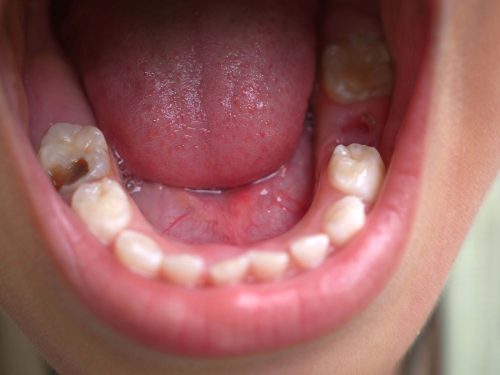
Flossing daily helps to get rid of plaque between your teeth. When you don't floss every night, that plaque can start to build up, and eventually that can lead to cavities, according to Lior Tamir, DDS, a cosmetic and reconstructive dentist at Bloom Dental Group.
"When plaque between your teeth is not removed, it's broken down by the bacteria in your mouth, creating acid that demineralizes your teeth and creates cavities," Tamir tells Best Life.
Cavities are essentially holes in your teeth, and unfortunately, they won't go away or resolve on their own. They require dental treatment, such as dental fillings—or in more extreme cases, root canals.
READ THIS NEXT: This Common Bathroom Habit Is a "Disaster" for Your Teeth, Dentist Warns.
You may have bad breath.
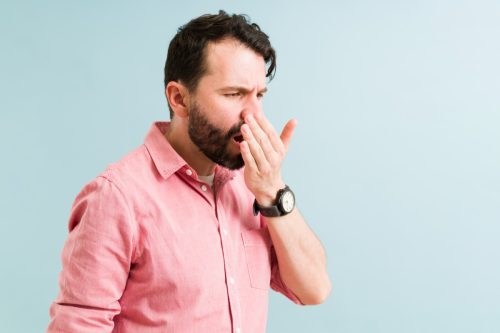
No matter how long you brush, how much toothpaste you use, or how many mints you chew, neglecting to floss can wreak havoc on your breath, says Jennifer Silver, DDS, a dentist at Macleod Trail Dental.
Flossing helps ward off bad breath in multiple ways. Firstly, it lifts away stuck food particles and bacteria from between your teeth. Secondly, it prevents the buildup of plaque, which is one of the most common causes of bad breath.
You'll be more prone to gum disease.
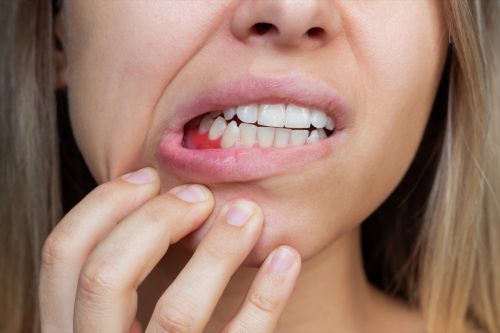
According to Ann Yasso, DMD, a dentist at Risas Dental and Braces, neglecting to floss nightly can cause plaque to solidify, eventually leading to gingivitis (gum disease). In some cases, gingivitis can turn into a serious gum infection called periodontitis. With periodontitis, you may experience bone loss. Eventually, your teeth can become loose or even fall out.
"Periodontal disease is also related to a bunch of other health issues such as diabetes and heart disease," Meevasin adds.
For more health news sent directly to your inbox, sign up for our daily newsletter.
You might notice some tooth sensitivity.
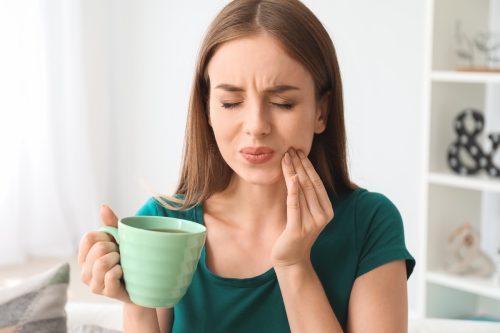
Is there anything worse than those pangs of tooth sensitivity after sipping some hot tea or taking a bite of cold ice cream? If you're looking to avoid this pesky issue, dentists say flossing is a must. Here's why.
Both gum disease and plaque buildup can cause tooth sensitivity. When you don't floss nightly, you're more prone to both of these issues, says Shawn Van de Vyver, DDS, a dentist at Smiles in Shelby.
Your gums might bleed.
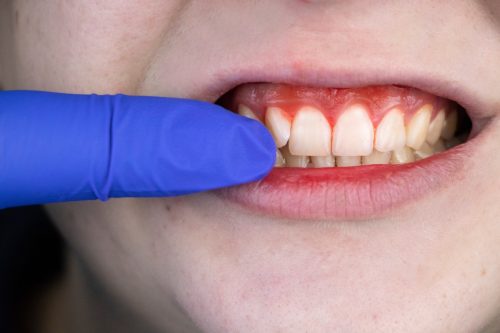
If you've ever spotted blood in your sink after spitting out some toothpaste and wondered what was going on, consider this: Your lack of flossing might be the culprit by allowing plaque to build up.
"When plaque progresses below the gumline, it can irritate the tissue, resulting in gum bleeding, redness, tenderness, and swelling," explains Daniel Weinstein, DDS, an associate chief dental officer at ProHEALTH Dental. "If you ignore this, you could be on the path to developing gingivitis, gum pockets, and eventually, gum disease," he warns.





















